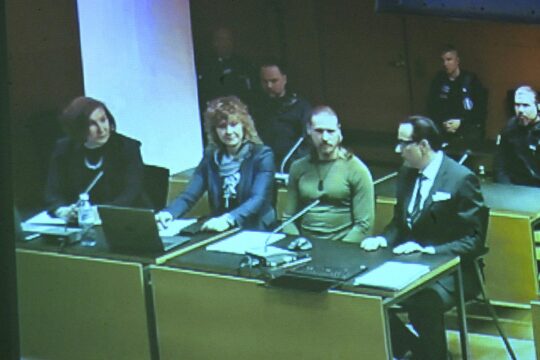Two years have passed since the signing of a deal aimed at ending the war in Ukraine but the bloody conflict has rumbled on -- at the cost of another 5,000 lives.
The Minsk II accord saw Kremlin-backed rebels agree with Kiev and Moscow on a halt to the fighting and outlined a complex roadmap for securing peace.
It was hammered out by the presidents of Ukraine and Russia with the help of their French and German counterparts and signed on February 11 two years ago.
The deal was inked during a period of intense combat and rising fears of an open war between the two neighbours. Kiev was accusing the Kremlin of covertly sending in thousands of troops -- putting huge pressure on Moscow's ties with the West.
What Minsk II did was rein in worries of a broader war. But it never eliminated the violence and deep mistrust blocking progress toward a political solution.
Today's death toll stands at more than 10,000 and swathes of Ukraine's coal-and-steel-producing east are still controlled by the self-proclaimed "people's republics" of Lugansk and Donetsk.
And damaging Western sanctions against Moscow remain in place.
So where did Minsk II go wrong?
"It is everyone's fault and there is no political will," one Western diplomat in Kiev told AFP on condition of anonymity.
The West is convinced that Russia sparked the conflict and is continuing to stoke it.
But it also believes Kiev must now share the burden over its refusal to hand some autonomy to the rebel fiefdoms in line with the terms of the deal.
- 13-point plan -
Minsk II followed on from the collapse of a September 2014 agreement that triggered some of the heaviest fighting of the entire war.
The deal emerged from 18 hours of talks between Russia's Vladimir Putin and Ukraine's Petro Poroshenko. Their French and German counterparts acted as mediators between the two sworn foes.
But the real meat of Minsk II was a separate 13-point plan that called for an "immediate and comprehensive ceasefire" and the quick withdrawal of heavy weapons from the front.
It granted Kiev control over all of its border with Russia on condition that Ukraine change its constitution to grant the separatist regions near Russia "special status" and "interim local self-government" by the end of 2015.
But none of these conditions was met and the agreements have been repeatedly extended as international powers cling on to them as the only hope of ending the 33-month war.
One key factor is the refusal of the dominant nationalist and populist forces in Ukraine's parliament to grant extra powers to the rebels for fear they would hand the regions over to Russia.
The insurgents themselves have never held OSCE-monitored elections under Ukrainian law -- as stipulated in the deal -- and instead pushed ahead with their own local council votes that infuriated Kiev.
And the Russian-Ukrainian border remains open wide enough for the Kremlin to send in tanks and other weapons to assist the separatists.
- Frozen conflict -
The deal has succeeded in limiting the scope of clashes to specific hotspots. Flareups like this month's battle in Avdiivka that killed dozens are increasingly rare.
What Ukraine fears most is that the war will turn into a "frozen conflict" -- like the situation in two Georgian regions seized by Russia and declared independent in 2008.
Georgia still considers them its own territory and had previously vowed to win them back through a new military offensive.
Kiev is also concerned that Western sanctions may be eased with the arrival of Donald Trump.
The new White House chief has taken a more conciliatory tone toward Moscow and Ukraine fears that this may result in US concessions over its future.
It is also frustrated that Western powers -- fearful of inciting Putin -- have refused to provide Ukrainian troops with the modern weaponry that could make Moscow's intervention more costly.
The past two years have seen every truce collapse and have left Poroshenko at a loss about what to do.
For now all eyes are on Washington.
"I think that inside the US administration, they are still looking for their Russian strategy," German Foreign Minister Sigmar Gabriel said on February 4.
"We all hope that (possible deals) between Russia and the US will not be made at the expense of Ukraine or Europe, and will lead to a detente between both global powers," he said.



